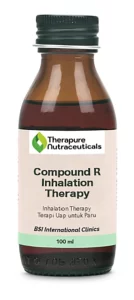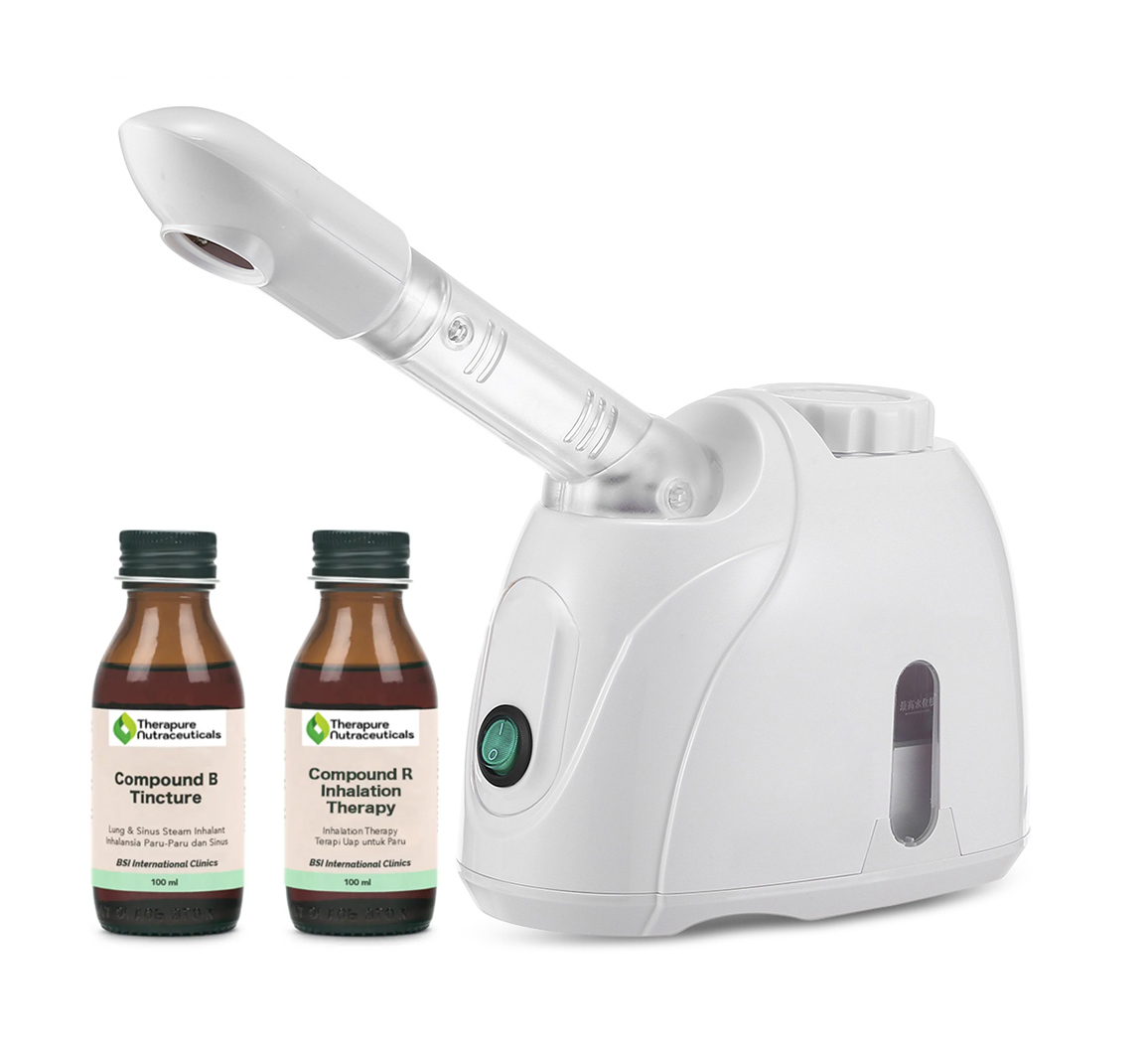Inhalation Therapy

Contents: Ethanol (grain alcohol), Eucalyptus (Eucalyptus globulus L), Mint, (Mentha cordifolia), Vitamin C (ascorbic acid), Basil (Ocimum basilicum L.), Comfrey (Symphytum officinale L.).
Indications: In treatment of asthma, inflammation, cough, bronchitis, headache, eczema, fever, dizziness, influenza, acne, various skin infections, bronchitis, cancer prevention, cancer treatment, chronic obstructive pulmonary disease (COPD), ear infections, emphysema, fever, herpes, inflammation, influenza, liver protection, parasitic lung and oral infections, runny nose, scabies, shingles, sinusitis, snoring, tuberculosis, whooping cough.
Actions: Antibacterial, antioxidant, antiseptic, antifungal, anti-inflammatory, antimicrobial, aromatherapy, anti-arthritic, astringent, vasoprotective, anticarcinogenic, anti-neoplastic, anti-viral, anti-inflammatory, as well as anti-allergic and anti-proliferative activity on tumor cells.

Steamer therapy is great for lungs, and it is also a great way to intake medicines. Because anything that goes into the lungs also goes directly into the blood stream. Of course the converse can also apply with smoke, cigarettes, vaping, air pollution, snorted drugs, and any intoxicant that enters the lungs. Steamer therapy can loosen tar and wash clean airways.
Inhalation therapy is very much similar to direct injection of medications.
In addition to lung and sinus therapies, The BSI Steamer Protocol is also very helpful for facial diseases, eye diseases, scalp infection or parasites, and skin infection nearly anywhere on the body.
In the airways – the trachea, bronchi, and bronchioles – mucus is produced by specialized airway epithelial cells called goblet cells, and submucosal glands. Small particles such as dust, particulate pollutants, and allergens, as well as infectious agents and non-beneficial bacteria are caught in the viscous nasal or airway mucus, and thus prevented from entering the respiratory system. This process, together with the continual movement of the cilia on the respiratory inner skin layer (epithelium), drives mucous toward the mouth and nose, and helps prevent foreign objects from entering the lungs during breathing. This explains why coughing often occurs in those who smoke cigarettes. The body’s natural reaction is to increase mucus production. In addition, mucus aids in moisturizing inhaled air and prevention of excess dehydration of all airway tissues.
Contact us